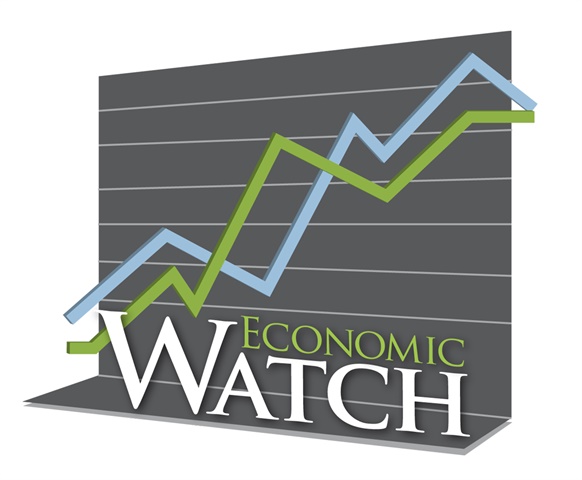Economic Watch: New GDP Reading Disappoints, Consumer Sentiment Falls

Hopes that the American economy picked up a good head of steam in the second quarter of the year were quickly dashed on Friday following numbers being issued by the U.S. Commerce Department.
The nation’s gross domestic product, the widest measure of economic activity, increased at an annual rate of 1.2% in the April-June period. In this advance estimate, the first of three, this compares to a downwardly revised 0.8% rate in the first quarter of the year and is well below what many economists were forecasting.
Growth in the first quarter GDP was estimated to be at rate of 1.1% a month earlier, while the department also revised down the fourth quarter rate from 1.4% to 0.9%. Part of the reason for the decline in the earlier figures is the federal government revised how it measures economic growth, affecting reports going back to 2013.
The disappointing headline reading was despite an as-expected jump in consumer spending that more than doubled the pace of growth in the prior quarter, rising 4.2%, according to RBC Economics. Strength in the household sector was not reflected in residential investment this time around, which fell 6.1% following sizeable gains over the last two years.
Nonresidential investment was also weak, declining for a third consecutive quarter, falling 2.3%, to extend the longest losing streak since the recession. Government spending declined for the first time in more than a year.
RBC also noted exports rose 1.4% following three consecutive quarterly declines amid an increase in the value of the U.S. dollar and slower global growth. With imports edging lower, net trade added 0.2 percentage points to growth, however, inventories continued to subtract from growth, with the drag accelerating to 1.2 percentage points in the second quarter.
“The strengthening in consumer spending is encouraging, and we look for households to continue to contribute to growth amid an improving labor market and low interest rates,” said Josh Nye, economist at RBC Economics Research. “However, the pullback in business investment, which has not been limited to the energy sector, remains a concern.”
He noted these two themes were reflected in the Federal Reserves’ latest policy statement, although their tone on overall activity painted a better picture than today’s growth numbers indicate.
Adding to the disappointment to the latest GDP reading is that housing has been strong, with many considering it one of the brightest spots of the post-recession economy. And while the latest indicators show manufacturing remains down, it has moved higher from being in negative territory earlier this year.
According to the Wall Street Journal, since the “Great Recession” ended seven years ago, the ecomic expansion has failed to achieve the significant growth seen in past recoveries, with the average annual growth rate during the current business cycle being 2.1%, the weakest of any expansion since at least 1949.
Consumer Sentiment Declines But Still Strong
Also on Friday, a final reading on consumer sentiment was also released showing it turned slightly slower this month.
The University of Michigan Survey of Consumers fell below the June level mainly due to increased concerns about economic prospects among upper income households.
The Consumer Sentiment Index posted declines of 3.7% and 3.3%, from June and year-over-year, respectively.
“The Brexit vote was spontaneously mentioned by record numbers of households with incomes in the top third, more than twice as frequently as among households with incomes in the bottom two-thirds,” said Surveys of Consumers chief economist Richard Curtin. “Given the prompt rebound in stock prices as well as the tiny direct impact on U.S. trade, it is surprising that concerns about Brexit remained nearly as high in late July as immediately following the Brexit vote.”
The survey’s measures of consumer feeling about current economic conditions fell from June, but are higher than they were this time a year ago. However, the measure of their expectations fell this month from both June and July 2015.
“While concerns about Brexit are likely to quickly recede, weaker prospects for the economy are likely to remain, Curtin said. “Uncertainties surrounding global economic prospects and the presidential election will keep consumers more cautious in their expectations for future economic growth.”
Follow @HDTrucking on Twitter
